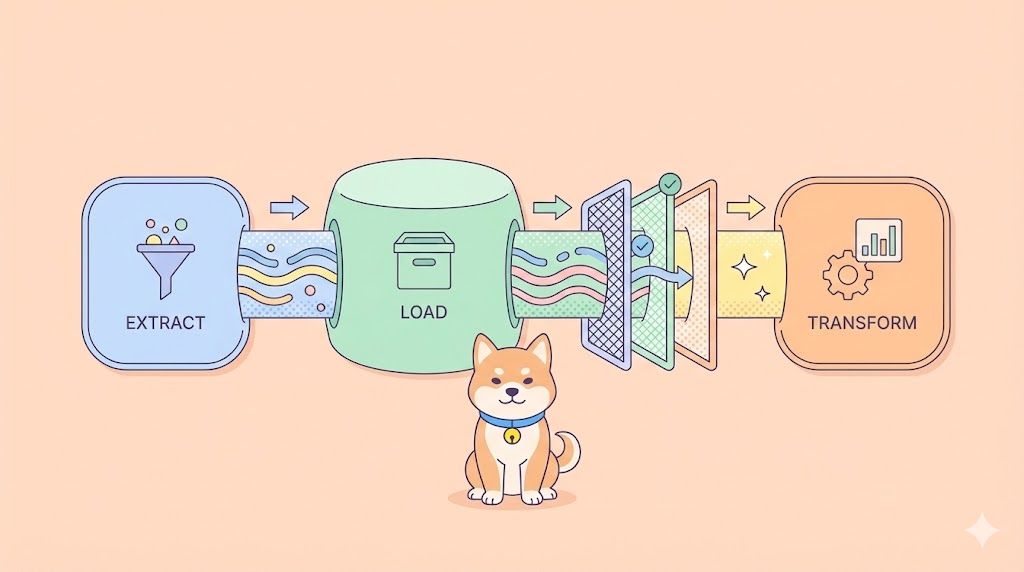AI tools are no longer just a novelty; they’re a necessity. From streamlining API testing to automating code generation, artificial intelligence is empowering developers to build smarter, faster, and more efficiently. Whether you're developing software, APIs, or trying to fine-tune your debugging process, AI tools can give you the edge you need to stay ahead of the competition.
In this post, I’ll walk you through the top 5 AI tools every developer should have in their toolbox. I’ve done the hard work and curated a list that covers all aspects of your workflow, so you can focus on what you do best: coding. Whether you're a seasoned pro or a newbie in the field, these tools will make your life a whole lot easier.
Don’t forget: As you read through, make sure to check out Apidog, a powerful API testing and development tool. It’s free and can significantly improve your workflow—especially when working with complex API structures. You can download Apidog here. Trust me, you won’t want to miss this!
Why AI Tools Are Game-Changers for Developers
Before we get to the list, let’s talk about why AI tools are so transformative for developers. As a developer, your time is precious. The more time you spend fixing bugs, manually testing APIs, or writing repetitive code, the less time you have to focus on innovation and building impactful features.
This is where AI steps in.
AI tools can:
Automate mundane tasks: Things like debugging, testing, and even some code writing can be offloaded to AI, allowing you to focus on high-level problem-solving.
Speed up testing and deployment: AI can run thousands of tests in seconds, identifying bugs and optimization opportunities you may miss.
Increase accuracy: Whether it's API testing or code generation, AI reduces the chances of human error.
Offer insights and optimizations: AI tools can analyze vast amounts of data to suggest better solutions, code optimizations, and even predict future issues.
Now, without further ado, let’s get to the top 5 AI tools that you need to add to your arsenal in 2025.
---
1. Apidog – The Ultimate API Development & Testing Tool
Want an integrated, All-in-One platform for your Developer Team to work together with maximum productivity?
Apidog delivers all your demands, and replaces Postman at a much more affordable price!
If you work with APIs (and let’s be honest, who doesn’t?), Apidog should be at the top of your AI toolkit. APIs are the backbone of modern applications, connecting different services and making communication seamless. Testing APIs manually is tedious, error-prone, and time-consuming. That’s where Apidog comes in.
What is Apidog?
Apidog is an AI-driven API development and testing platform that streamlines the process of creating, testing, and documenting APIs. It’s designed with developers in mind, offering an intuitive interface, powerful testing features, and real-time feedback on API performance.
Key Features:
Automated API testing: Apidog uses AI to automatically test your APIs, ensuring they work as expected and catch any bugs early in the process.
API documentation: The platform generates comprehensive API documentation, making it easy to keep track of your endpoints, request formats, and more.
Seamless collaboration: Apidog allows teams to work together effortlessly, sharing tests, APIs, and documentation in a unified platform.
Real-time performance feedback: Get instant feedback on API response times, error rates, and more, so you can optimize as you go.
Why Developers Love It:
With Apidog, you can cut your API development time in half. You won’t need to spend hours manually testing each endpoint, and the built-in documentation features mean you’ll never lose track of your API structures again. It’s particularly useful when dealing with large, complex systems with multiple APIs interacting simultaneously.
Download Apidog for free and see how it can revolutionize your API workflow!
2. GitHub Copilot – Your AI Pair Programmer

Next up is GitHub Copilot, an AI-powered coding assistant that has taken the development world by storm. If you ever wished you had a coding buddy who could offer helpful suggestions and write entire blocks of code for you, GitHub Copilot is it.
What is GitHub Copilot?
GitHub Copilot uses the OpenAI Codex to assist developers by suggesting code snippets, auto-completing functions, and even writing entire modules based on simple comments or function names. It integrates directly into Visual Studio Code, making it incredibly easy to use during your normal coding sessions.
Key Features:
Code suggestion and completion: Whether you're writing JavaScript, Python, or Ruby, GitHub Copilot can help by suggesting relevant code snippets.
Code generation: Type out a function name or comment, and Copilot will generate the code for you. It’s like magic.
Multi-language support: Copilot understands a wide array of programming languages, including Python, JavaScript, Go, Ruby, and many more.
Context-aware recommendations: It learns from your current code context to suggest accurate, relevant code snippets.
Why Developers Love It:
GitHub Copilot reduces the cognitive load on developers by handling repetitive or complex code blocks, leaving you more time to think about architecture and logic. It’s like having an AI-powered pair programmer sitting right next to you, making suggestions and keeping you productive.
3. Tabnine – Smarter Auto-completion for Faster Coding
Another game-changing AI tool that’s changing the way developers write code is Tabnine. If you love GitHub Copilot, Tabnine is its AI-powered auto-completion counterpart that focuses on predicting the next line of code.
What is Tabnine?
Tabnine is an AI-driven code completion tool that integrates with popular code editors like VS Code, Sublime, and JetBrains IDEs. It predicts and suggests the next block of code you're likely to write, based on the current context of your work.
Key Features:
Advanced code completion: Tabnine suggests entire code blocks, not just single lines, making it faster to write complex code.
Privacy-focused: Unlike some other AI tools, Tabnine offers a local model that runs directly on your machine, ensuring your code stays private.
Supports multiple languages: Whether you code in JavaScript, Python, or even Rust, Tabnine has you covered.
Seamless IDE integration: Works across popular IDEs like VS Code, PyCharm, and IntelliJ IDEA.
Why Developers Love It:
Tabnine takes auto-completion to the next level. It goes beyond simple line-by-line completion to offer meaningful suggestions that save time and reduce the chance of introducing errors. Plus, its privacy-focused local model is a hit with developers working on sensitive projects.
4. DeepCode – AI-Powered Code Review
Let’s face it: code reviews can be tedious. If you’re a developer, you probably dread the back-and-forth process of reviewing and optimizing code. DeepCode solves this problem by acting as an AI code reviewer that catches bugs and offers improvements in real time.
What is DeepCode?
DeepCode is an AI-powered code review tool that automatically checks your code for issues like security vulnerabilities, bugs, and inefficiencies. It integrates seamlessly with GitHub, GitLab, and Bitbucket, making it easy to include in your existing CI/CD pipeline.
Key Features:
Real-time code analysis: DeepCode reviews your code as you write it, identifying potential problems before they become serious.
Supports multiple languages: Works with a variety of programming languages including JavaScript, Python, and Java.
Security-focused: DeepCode flags potential security vulnerabilities in your code, offering suggestions on how to fix them.
Continuous integration: It integrates directly into your CI/CD pipeline, so you can automate code reviews as part of your deployment process.
Why Developers Love It:
With DeepCode, you can say goodbye to manual code reviews that take hours to complete. It catches bugs and inefficiencies early, meaning your code is always optimized and secure. Plus, it’s a great learning tool for junior developers who can see real-time feedback on their code.
5. Codota – Code Search and Completion on Steroids
Last but certainly not least, we have Codota, an AI-powered code completion and search tool that’s designed to help developers find relevant code snippets faster. If you’ve ever found yourself endlessly searching through Stack Overflow for the right snippet of code, Codota will feel like a breath of fresh air.
What is Codota?
Codota is an AI-driven platform that allows developers to search for and complete code snippets directly within their IDE. It taps into millions of open-source repositories to suggest the most relevant code snippets based on your current project.
Key Features:
Intelligent code search: Find relevant code snippets across millions of repositories in seconds.
Context-aware completion: Codota learns from your current codebase to suggest snippets that fit seamlessly into your project.
Security checks: Codota warns you if the suggested code snippets have known security vulnerabilities.
Cross-language support: Supports multiple languages including Java, JavaScript, and Python.
Why Developers Love It:
Codota saves developers time by offering relevant, context-aware code snippets that you can instantly use in your projects. Its intelligent search functionality cuts down on the time spent hunting through documentation or Stack Overflow.
Wrapping Up: Boost Your Productivity with AI
There you have it! These top 5 AI tools—Apidog, GitHub Copilot, Tabnine, DeepCode, and Codota—are must-haves for any developer looking to streamline their workflow and supercharge productivity in 2025.
Whether you're working with APIs, writing code, or reviewing it for optimization and security, these tools can drastically improve the quality and speed of your development process. What’s exciting about AI in development is that it’s just the beginning. As machine learning models continue to evolve, the efficiency and capabilities of these tools will only get better, making it an exciting time to be a developer.
Let’s quickly recap each of the tools we discussed and how they can help transform your daily workflow:
1. Apidog: Simplifies API development and testing with AI-driven features that automate much of the testing and documentation process. Whether you're building complex systems with multiple APIs or just trying to optimize a single endpoint, Apidog is an invaluable resource. With real-time performance monitoring and collaboration features, Apidog takes the headache out of managing APIs.
2. GitHub Copilot: Acting as your personal AI-powered coding partner, GitHub Copilot can help you write code faster, offering helpful suggestions based on your existing code. It’s an excellent resource for those who often find themselves getting stuck or needing inspiration on the best approach to solving a problem.
3. Tabnine: Ideal for code completion, Tabnine steps up the auto-completion game by predicting your next few lines or entire code blocks. It’s designed to help you stay in the flow, especially when working on long and repetitive coding tasks.
4. DeepCode: With DeepCode, you no longer need to rely solely on manual code reviews. It catches bugs and security vulnerabilities before they’re deployed, integrating seamlessly into your CI/CD pipeline. Developers working in security-sensitive industries will especially benefit from DeepCode’s insights.
5. Codota: Finally, Codota simplifies code searches and integrations by giving you access to relevant snippets from across the web. Whether you’re searching for a solution or trying to find an optimized version of your code, Codota’s context-aware search will save you hours of hunting for the perfect line.
Why These AI Tools Are Essential for Modern Development
With the sheer amount of code developers need to write, test, and review daily, AI-powered tools are becoming an essential part of modern software development. These tools allow you to focus on the bigger picture, helping you think through architecture and design while they take care of the more repetitive or time-consuming aspects of coding.
Here’s why these AI tools are game-changers for developers:
1. Speed: The faster you can write, test, and review code, the quicker you can ship products. With AI-driven suggestions, code generation, and testing, your time to deployment is drastically reduced.
2. Error Reduction: Humans make mistakes, especially when dealing with long, complex lines of code or numerous APIs. AI tools help eliminate human error by offering instant feedback, catching potential bugs, and flagging vulnerabilities.
3. Collaboration: Many of these tools (like Apidog) also allow for seamless collaboration between team members, making it easier to share tests, documentation, and code reviews.
4. Learning Opportunities: AI tools also serve as learning aids, providing junior developers with real-time insights and suggestions. By analyzing code and flagging issues, they help users improve their coding practices over time.
5. Scalability: As your projects grow, manually handling tasks like API testing, code reviews, or even writing boilerplate code becomes more difficult. AI tools scale with your projects, making sure that regardless of the project size, your workflows remain efficient and streamlined.
How to Start Integrating These AI Tools into Your Workflow
Ready to supercharge your development process? Here are a few tips on how you can start integrating these AI tools into your daily work:
1. Start with a Focus Area: Determine which part of your workflow feels most time-consuming or tedious. For example, if API testing takes up a large portion of your time, start with Apidog. If you're always digging through documentation to find the right code snippet, try Codota or Tabnine first.
2. Choose the Right Tools: While it may be tempting to implement all of these tools at once, it’s best to introduce them one at a time and get comfortable with how each one integrates into your workflow. For instance, GitHub Copilot is excellent for general coding assistance, while DeepCode is more focused on code review and optimization.
3. Leverage Integrations: Most of these AI tools integrate seamlessly with popular development environments and platforms like Visual Studio Code, GitHub, and JetBrains IDEs. Use these integrations to your advantage to create a smooth workflow that doesn’t require constant switching between applications.
4. Experiment and Customize: Many of these tools offer customizable settings or learning models. For example, with Tabnine, you can tweak the AI model to work locally, ensuring it fits your unique privacy and performance requirements. Don’t hesitate to experiment and find the optimal configuration for your work.
5. Stay Up-to-Date: AI technology is rapidly evolving. New features and updates are being added to these tools frequently. Keep an eye on release notes and updates to make sure you're taking full advantage of the latest capabilities.
The Future of AI in Development
AI is only going to get more integrated into the development world as we move forward. As machine learning algorithms become more sophisticated, we can expect even more advanced tools that will further automate tasks like debugging, code generation, and deployment. It’s possible that in the future, AI could even become a major part of design and architecture decisions, offering suggestions on how to structure applications for maximum efficiency.
However, this doesn’t mean AI will replace developers. Instead, these tools will allow developers to work more creatively and efficiently, spending less time on repetitive tasks and more time solving complex problems. In essence, AI will be a tool that enhances human capabilities, not replaces them.
Conclusion: Embrace the Power of AI Today
The future of development is undeniably intertwined with AI. Tools like Apidog, GitHub Copilot, Tabnine, DeepCode, and Codota are already changing the way we code, test, and deploy applications. They’re more than just fancy gadgets—they’re productivity-boosters, error-reducers, and learning tools all rolled into one.
By incorporating these AI tools into your development workflow, you’ll not only speed up your process but also improve the quality of your code. As AI continues to evolve, the tools you rely on will only get better and more advanced, keeping you at the cutting edge of development practices.



